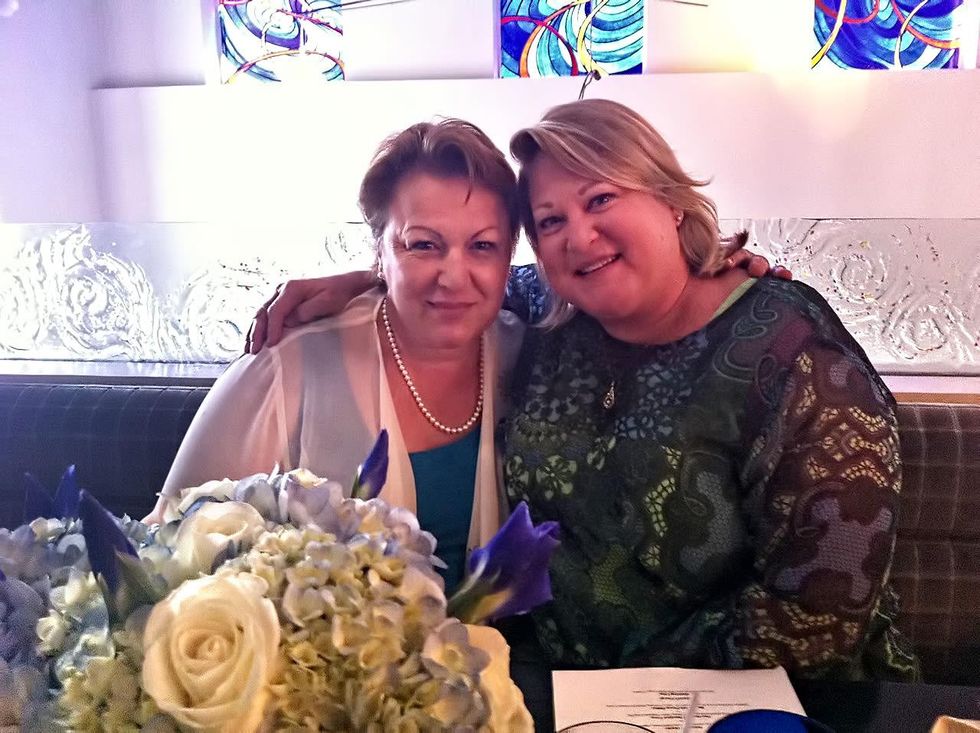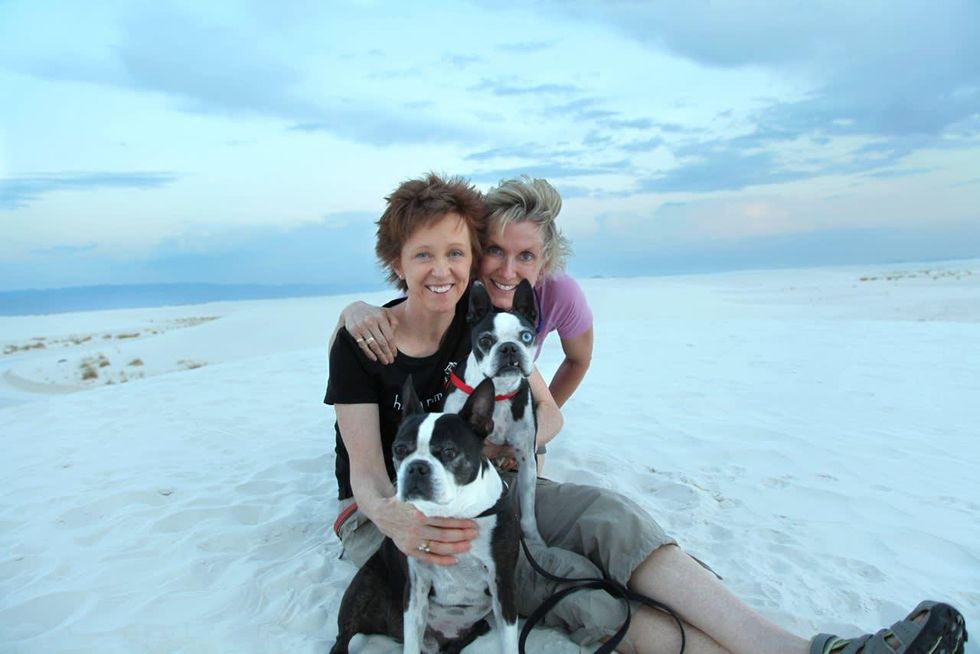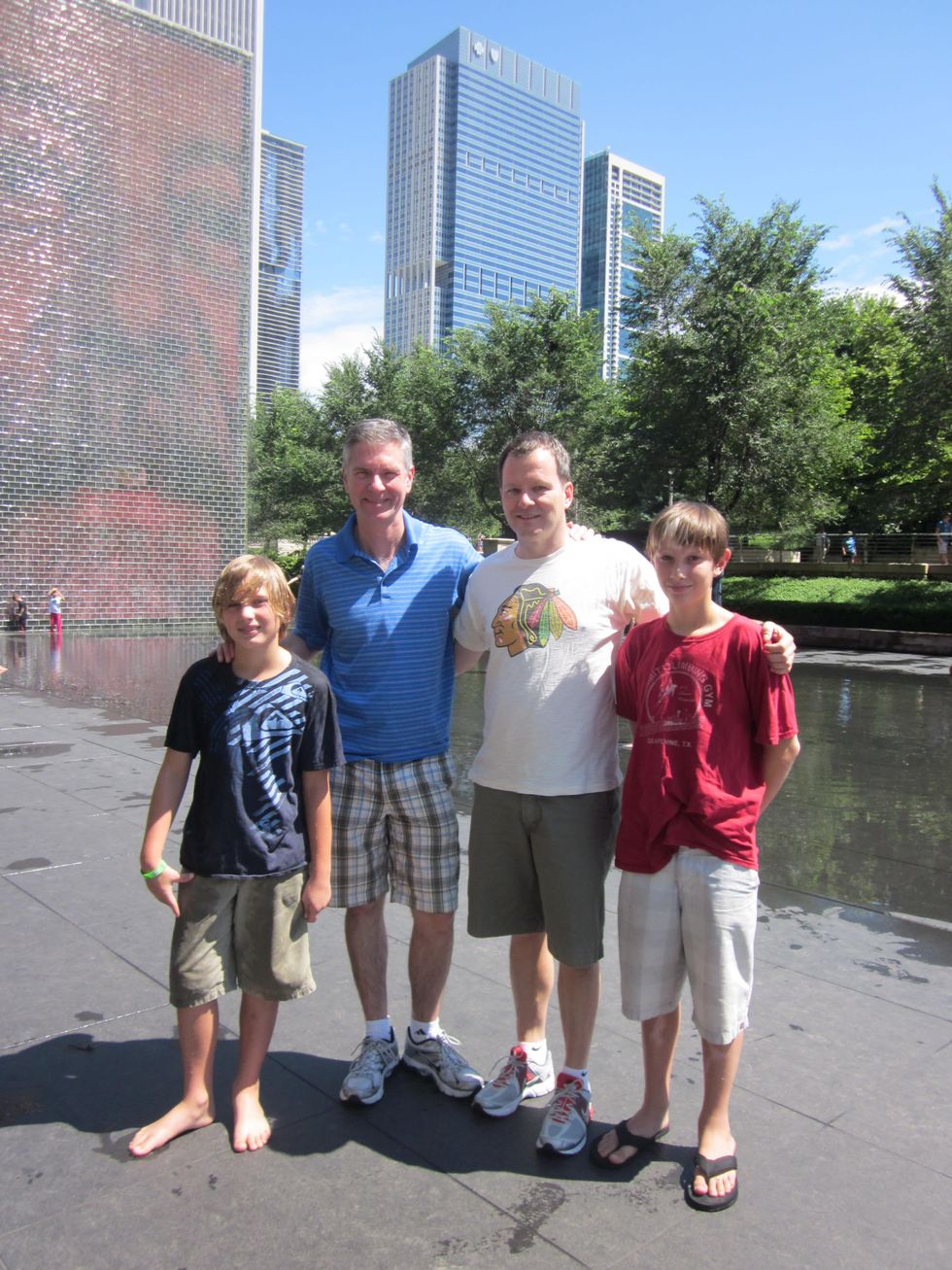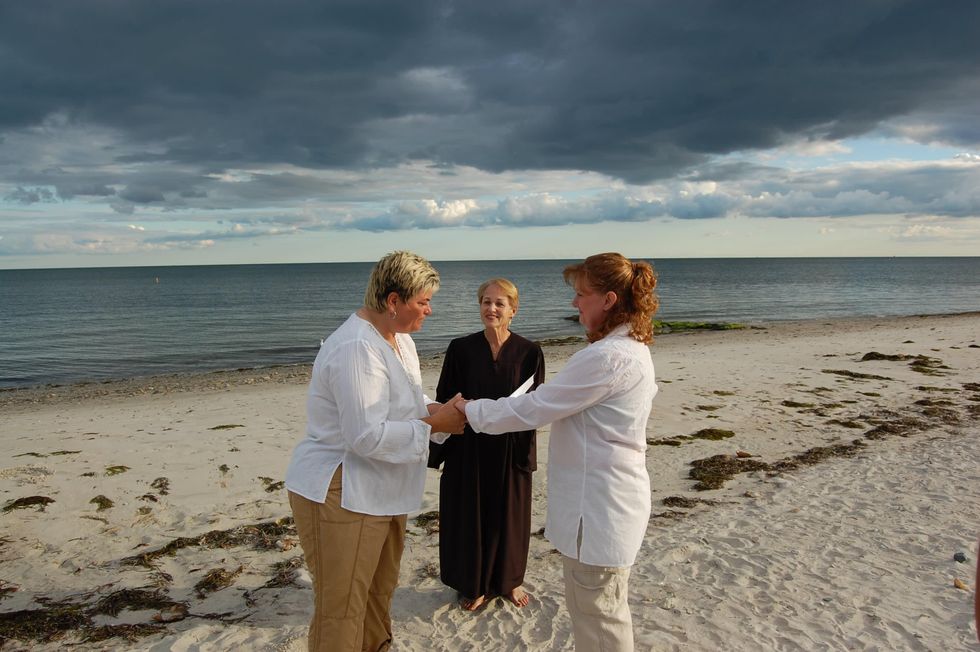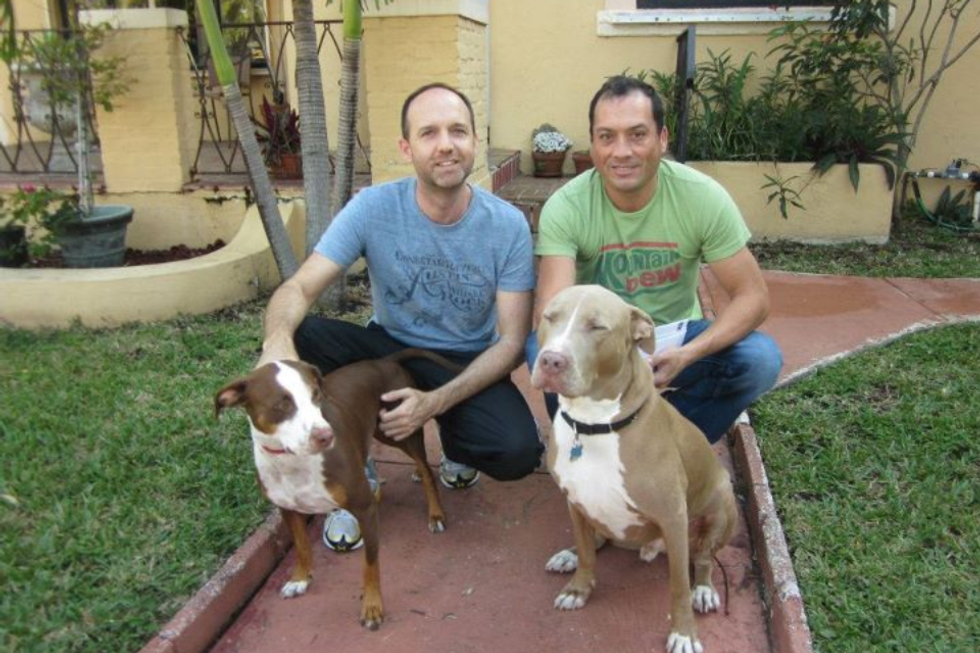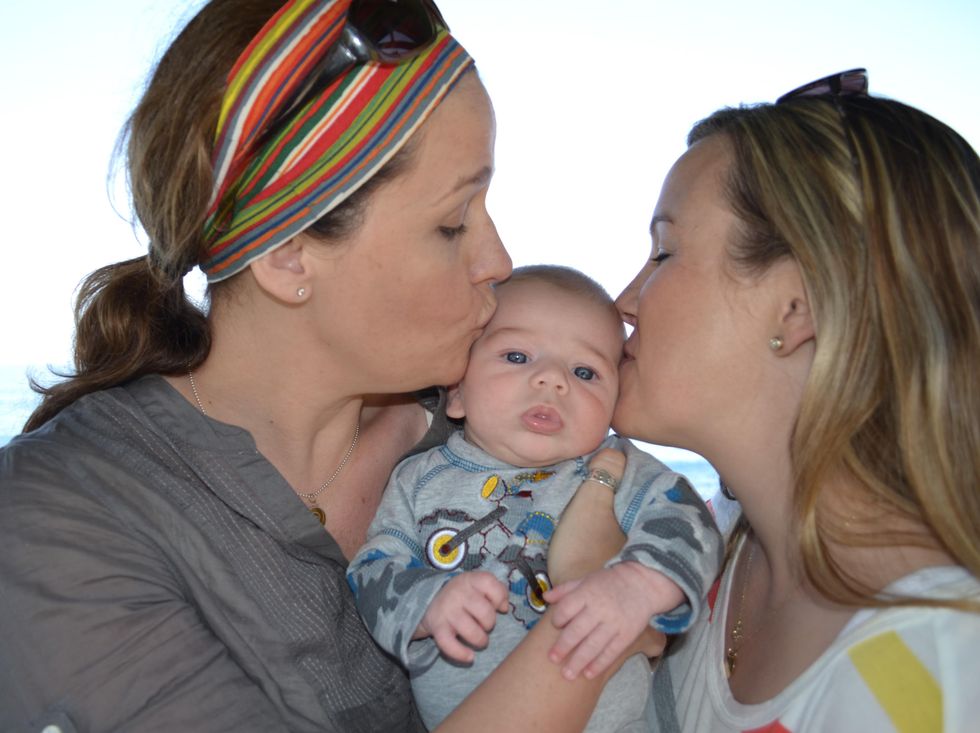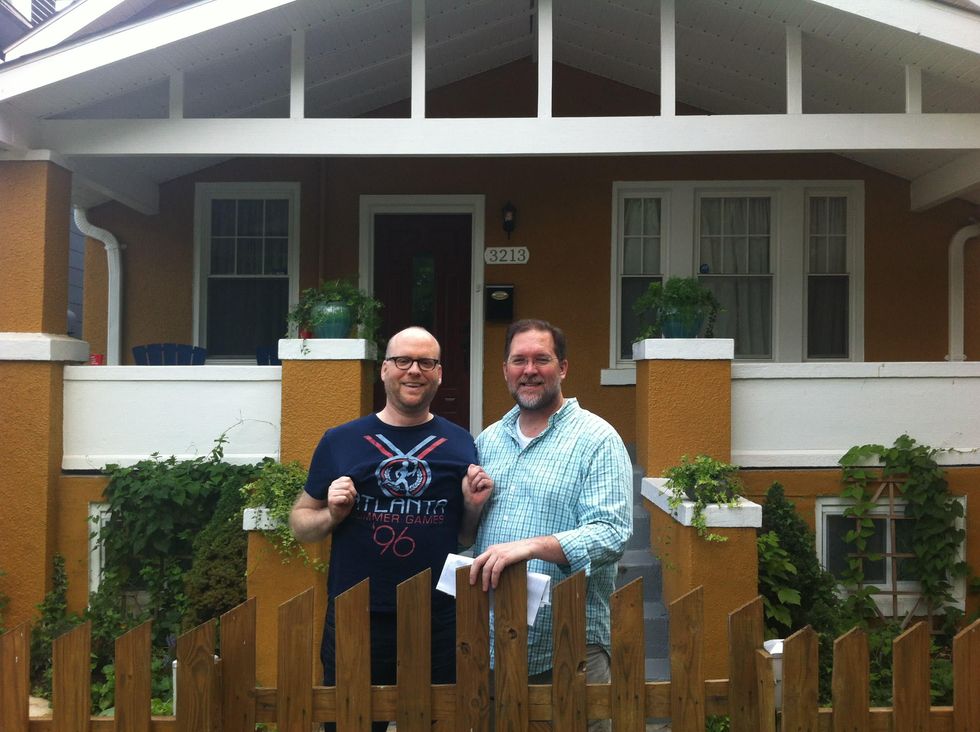92 Days of Summer
A week after DOMA dies, Dallas family takes road trip to monumental D.C. wedding
A few months ago, our friends Sue and Angie announced they were getting married while on their family vacation. They were spending a week in New York City and another in Washington, D.C., two places they could legally seal the deal. So, after 27 years together, why not?
At first, it was just a small gathering with their teenaged sons. Then this family member wanted to come and this friend would be happy to fly in. Suddenly, it was a thing. And, of course, we were invited.
My initial thought, after a quick consultation with Google maps, our bank account and calendar, was wow, that’s a 1,338-mile trip. Each way. We couldn’t afford to fly, at least not all four of us. Our two-week road trip vacation is in just a few weeks. Not an ideal time for my husband to take off of work. There were plenty of reasons we couldn’t make it happen.
If they had been straight or DOMA and prejudice had never existed, things would’ve been different. Their wedding wouldn’t have been an add-on to a family vacation. It would’ve been an event all by itself.
If they had been straight or DOMA and prejudice had never existed, things would’ve been different. They could’ve gotten married at our church in the M Streets. Or, actually, they would’ve gotten married 27 years ago when they fell in love. It wouldn’t have been an add-on to a family vacation. It would’ve been an event all by itself.
But let’s let unconstitutional bygones be bygones. Within a couple of days, we figured out ways to make it work. Within another week, DOMA was history.
When explaining to my 16-year-old son what the U.S. Supreme Court was considering these past few months, he paused for a moment to think about what it would mean if all our gay friends could be legally married. “We’d spend all our time going to weddings for the next year,” he said, only slightly exaggerating.
Our friends John and Mario have been together for a decade. Mario wasn’t U.S. citizen when they met, which has caused a ridiculous amount of stress and legal maneuvering during their relationship. If they had been straight or DOMA and prejudice had never existed, things would’ve been different.
Laura and Cabrina have been together for 17 years. Laura has significant medical issues and must have insurance. When she was laid off a few years ago, she had to pay ridiculous COBRA bills and rely on the kindness of pharmaceutical companies (known for their empathy) to get medicine she has to have. If they had been straight or DOMA and prejudice had never existed, things would’ve been different.
Kristin and Connie have been together for six years. They have a 1 1/2-year-old son. Kristin wanted to stay home with him after he was born but couldn’t because she needed insurance to cover her next pregnancy. So she works and their baby goes to daycare. It isn’t the end of the world, but if they had been straight or DOMA and prejudice had never existed, things would’ve been different.
Glenn and Jon have been together for five years. They got married three years ago in a civil ceremony in D.C. We didn’t know about it until recently. Few people did. Jon comes from a family of evangelical Arkansans. Enough said. If they had been straight or DOMA and prejudice had never existed, things would’ve been different.
Paula and Cindy have been together for 10 years. They’ve thought about getting married but, becaise it hasn’t been a legal option, it wasn’t a priority. While still not legal in their state, there may now be some federal benefits to it. But, in their 50s and without children, is there a need? Are there actually more cons than pros?
Marriage is a practical discussion that involves planning for their long-term health care more than legally celebrating that they’ve found their soul mate. If they had been straight or DOMA and prejudice had never existed, I believe things would’ve been different.
My two sons standing there, witnessing the legal marriage of two women who are like second and third mothers to them, was the most important thing we could possibly be doing on a Tuesday afternoon.
Craig and Monty are our boys’ godparents. Their first date was almost exactly 14 years ago. As I write this, they are celebrating their nine-year anniversary in Canada. At that point, their options were Canada or Massachusetts, the first state in the U.S. to legalize gay marriage just two weeks before their July 5, 2004, wedding. Now, 13 states have legalized gay marriage, 12 of them since 2008. We weren’t at Craig and Monty’s wedding. It was far away; the boys were 4 and 7 at the time. In retrospect, although I knew in my head it was legal, it felt symbolic.
If they had been straight or DOMA and prejudice had never existed, things would’ve been different. Their wedding would not have been in a different country. Craig’s parents would’ve been there. We would’ve been there. We should’ve been there.
As we were at Sue and Angie’s wedding. Being with them at 12:30 on a Tuesday in D.C., six days after DOMA became our country’s unfortunate history and not our unequal present was more than I could’ve imagined. I felt the monumental love of these two women and of all our gay friends who have fallen in love and built lives despite everything trying to stand in their way. I felt the monumental change in our country’s history.
And, so much more importantly, so did my boys. The two of them standing there with two of their closest friends, witnessing the legal marriage of two women who are like second and third mothers to them, was the most important thing we could possibly be doing on a Tuesday afternoon.
Like the journey of equality for women and African-Americans — of which I can only read about — this exchange of vows changes everything. Monumentally. To be there to witness it was something I could not fully grasp until I was in the moment.
As he did at our wedding, my husband read one of his favorite poems at Sue and Angie’s ceremony, Elizabeth Barrett Browning’s Sonnets from the Portuguese 43. It begins with, “How do I love thee? Let me count the ways,” and ends with, “I love thee with the passion put to use in my old griefs and with my childhood’s faith. I love thee with a love I seemed to lose with my lost saints. I love thee with the breath, smiles, tears, of all my life; and, if God choose, I shall but love thee better after death.”
If they had been straight or DOMA and prejudice had never existed, things would’ve been different. But these words and these loves would not have been. That my boys know that — saw that on this special day and every day we are with all of these friends — means everything on this journey we’re all traveling together.
